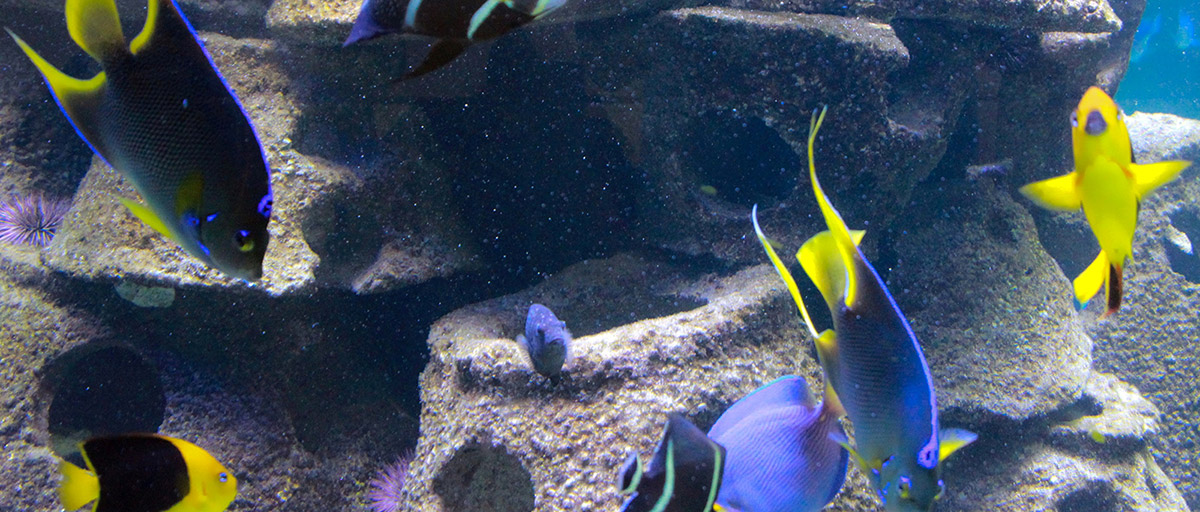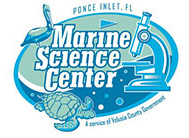REEFS

Working closely with the Volusia County Coastal Division, the Marine Science Center provides educational and scientific support to help promote the area's Artificial Reef Program. The Artificial Reef Program began in 1980 to provide nearby artificial reef habitat to offset the increasing pressure on the local natural reefs.
Visitors to the Marine Science Center can meet some of our area's reef inhabitants personally by way of our 5,000-gallon Artificial Reef exhibit. The MSC also provides training for divers interested in doing volunteer diver surveys as part of the Volusia County Reef Research Dive Team. Volunteers are trained to properly identify marine life collect data that is vital to gauging conditions on artificial and natural reefs.
How You Can Help Preserve Our Coral Reef Ecosystem
- Avoid purchasing marine life – dead or alive. Mass harvesting for souvenir purposes causes severe damage to coral reefs.
- Do not dump chemicals into storm drains. Run-off from non-point sources kills coral reefs and the organisms that live there.
- Even the lightest touch with hands or equipment can damage coral. Please make every effort to practice proper buoyancy control when swimming near coral. Never stand on a coral reef.
- It’s illegal to harvest coral in Florida. Observe the living reef but don’t take or disturb any specimens.
- Bring your trash to shore and recycle it. Plastic bags, monofilament line and other debris can injure or kill marine life.
- Anchor in sandy areas away from coral and seagrasses so the anchor doesn’t damage the habitat.
- Consult tide and navigation charts and steer clear of shallow areas. Accidental boat groundings can damage reefs.
- Use sewage pump-out facilities and biodegradable bilge cleaner, and never discharge bilge water at the reef.
- Support responsible coastal development. Sand erosion from lack of vegetation and dune habitat destroys reefs. Dredging for beach replenishment as a result of this erosion destroys them too.
- Be aware of protected marine habitats and report any illegal activities (such as bottom trawling, longline fishing and the use of fish/crab traps in these zones) to the FWC’s Law Enforcement Division at 321-383-2740.

 DONATIONS
DONATIONS


